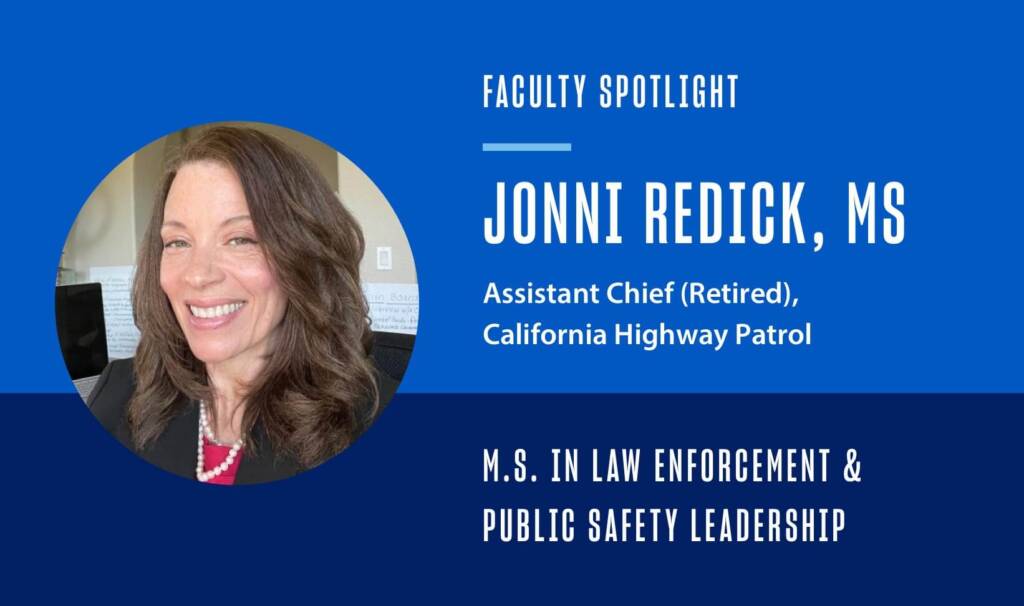As the world and issues facing law enforcement personnel have changed over the years, many educational institutions have failed to keep up. What was taught 20 years ago in traditional criminal justice degree programs is, in many cases, still being taught today. But it’s outdated. According to a National Institute of Justice article titled, Police Leadership Challenges in a Changing World [PDF], “there is still a widespread tendency to adhere to outdated and ineffective management practices. For example, even the way a department’s overall effectiveness is traditionally measured and tracked — typically some aspect of response time or fulfillment of calls for service — lacks relevance to current expectations of and for police.”
This lag in both law enforcement education and workplace practices coupled with the retirements of baby boomers and rapid technological advances, has created a tremendous opportunity for current and emerging law enforcement professionals to drive change and better serve their communities. But in order to be effective, law enforcement professionals need to be adequately prepared with the leadership skills that are most needed today: communication, technology, conflict resolution, data analytics and community engagement. They need more than just a traditional criminal justice degree and on the job experience. They need a practical and relevant education that will focus on current issues and offer applicable, 21st century skills.
What Makes a Degree in Law Enforcement Leadership Different From A Criminal Justice Degree?
Contemporary law enforcement is complex and requires a diverse skill set, which many law enforcement professionals never received in their primary training or formal education, often due to outdated curriculums. Many of the theories taught in traditional criminal justice degree programs did not prepare a law enforcement professional for the experiences and realities of policing in today’s environment.
A degree in law enforcement and public safety leadership focuses less on theories and more on critical skill building in areas like communication, community relations, conflict resolution, data analysis, budget/resource allocation, technology management, and more. It also provides a forum for students to explore solutions to the most pressing issues facing agencies today by sharing best practices and learning from their peers.
Leadership Preparation
According to Police Chief magazine, traditional criminal justice programs and police academies do not teach leadership skills but rather focus on “reducing and solving crime with little training devoted to effective leadership.” As new leaders emerge and take on command positions, many are finding themselves faced with situations for which they have had little, if any, preparation.
Community Relations and Mental Health
According to an article in the Washington Post article, “Criminal justice experts say police are often ill-equipped to respond to such individuals [mentally ill] — and that the encounters too often end in needless violence. ‘This a national crisis,’ said Chuck Wexler, executive director of the Police Executive Research Forum, an independent research organization devoted to improving policing. ‘We have to get American police to rethink how they handle encounters with the mentally ill. Training has to change.’”
For those that aspire to leadership positions, forward thinking, understanding current trends and being able to think differently in order to create solutions is are vitally important. By honing and developing critical thinking, problem solving and collaboration skills – all objectives of a leadership-focused law enforcement master’s program – law enforcement professionals are better prepared to react appropriately in any given situation.
By focusing on what is relevant today and providing skills education in management, leadership, communication, conflict resolution, budgeting and organizational leadership, a law enforcement and public safety degree is an invaluable tool for field professionals during a time of transition and opportunity.
The University of San Diego offers an online MS in Law Enforcement and Public Safety Leadership degree that has gained a national reputation as one of the best online graduate programs for law enforcement. This highly practical and contemporary degree examines leadership, organizational theory and culture, current issues, community engagement, budgeting and finance, and other current topics in a format that allows for collaboration with other public safety professionals from agencies around the country. Learn more at https://criminaljustice.sandiego.edu today.



